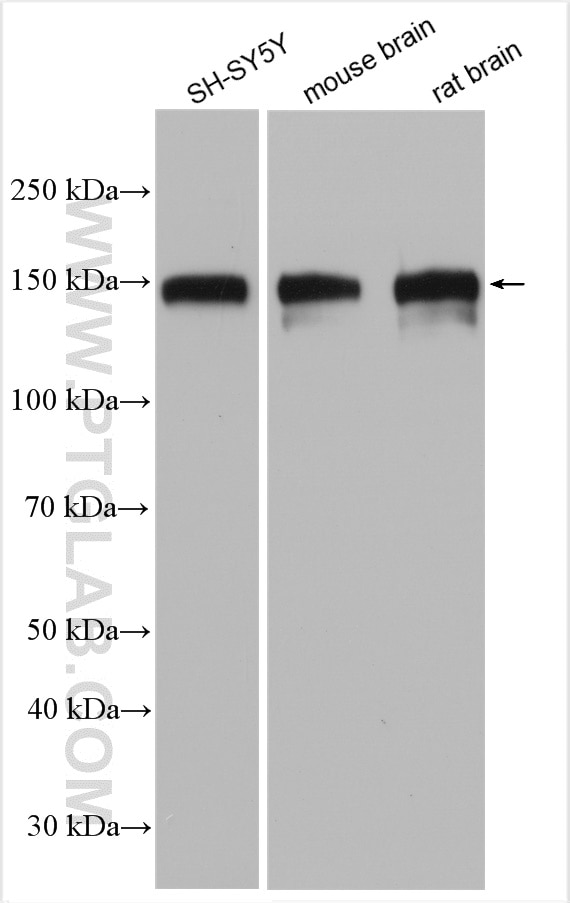Tested Applications
| Positive WB detected in | SH-SY5Y cells, mouse brain tissue, rat brain tissue |
Recommended dilution
| Application | Dilution |
|---|---|
| Western Blot (WB) | WB : 1:5000-1:50000 |
| It is recommended that this reagent should be titrated in each testing system to obtain optimal results. | |
| Sample-dependent, Check data in validation data gallery. | |
Product Information
29890-1-AP targets SNIP/p140Cap in WB, ELISA applications and shows reactivity with Human, mouse, rat samples.
| Tested Reactivity | Human, mouse, rat |
| Host / Isotype | Rabbit / IgG |
| Class | Polyclonal |
| Type | Antibody |
| Immunogen |
CatNo: Ag31857 Product name: Recombinant human SNIP protein Source: e coli.-derived, PGEX-4T Tag: GST Sequence: RSFPSSHGLTTTRTGEVVVTSKKDSAFIKKAESEELEVQKPQVKLRRAVSEVARPASTPPIMASAIKDEDDEDRIIAELESGGGSVPPMKVVTPGASRLKAAQGQAGSPDKSKHGKQRAEYMRIQAQQQATKPSKEMSGSNETSSPVSEKPSASRTSIPVLTSFGARNSSIS Predict reactive species |
| Full Name | SNAP25-interacting protein |
| Calculated Molecular Weight | 127 kDa |
| Observed Molecular Weight | 145 kDa |
| Gene Symbol | SNIP |
| Gene ID (NCBI) | 80725 |
| RRID | AB_3086180 |
| Conjugate | Unconjugated |
| Form | Liquid |
| Purification Method | Antigen affinity purification |
| UNIPROT ID | Q9C0H9 |
| Storage Buffer | PBS with 0.02% sodium azide and 50% glycerol, pH 7.3. |
| Storage Conditions | Store at -20°C. Stable for one year after shipment. Aliquoting is unnecessary for -20oC storage. 20ul sizes contain 0.1% BSA. |
Background Information
SNIP, also named SRC kinase signaling inhibitor 1 (SRCIN1) and p140 Cas-associated protein (p140CAP), contains two regions of highly charged amino acids, two proline-rich regions, and two coiled-coil domains. SNIP plays a role in SRC inactivation and acts as a tumor suppressor gene in cancers. MiR-32 suppresses the expression of SNIP, thereby suppressing proliferation and epithelial-mesenchymal transition (EMT) of human liver cancer cells (PMID: 28550679).
Protocols
| Product Specific Protocols | |
|---|---|
| WB protocol for SNIP/p140Cap antibody 29890-1-AP | Download protocol |
| Standard Protocols | |
|---|---|
| Click here to view our Standard Protocols |




